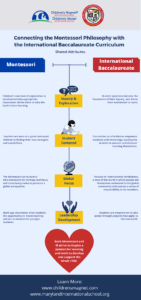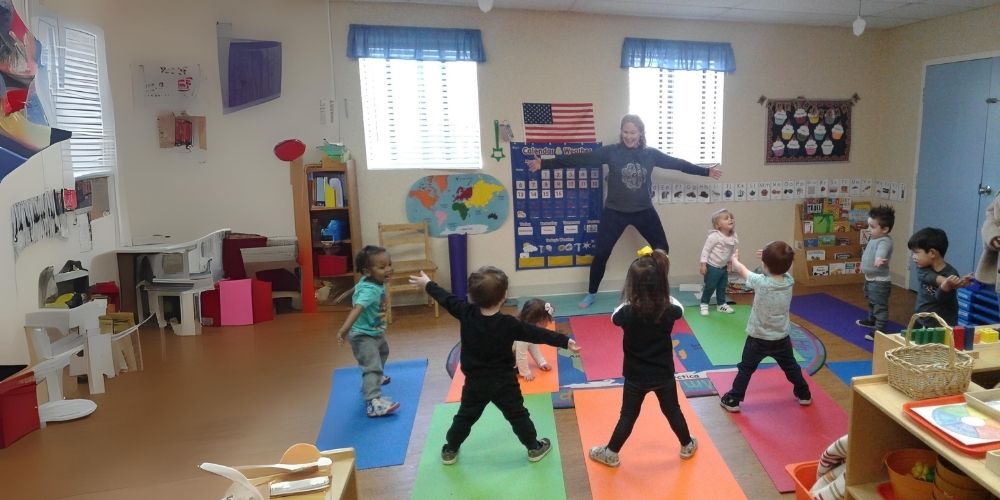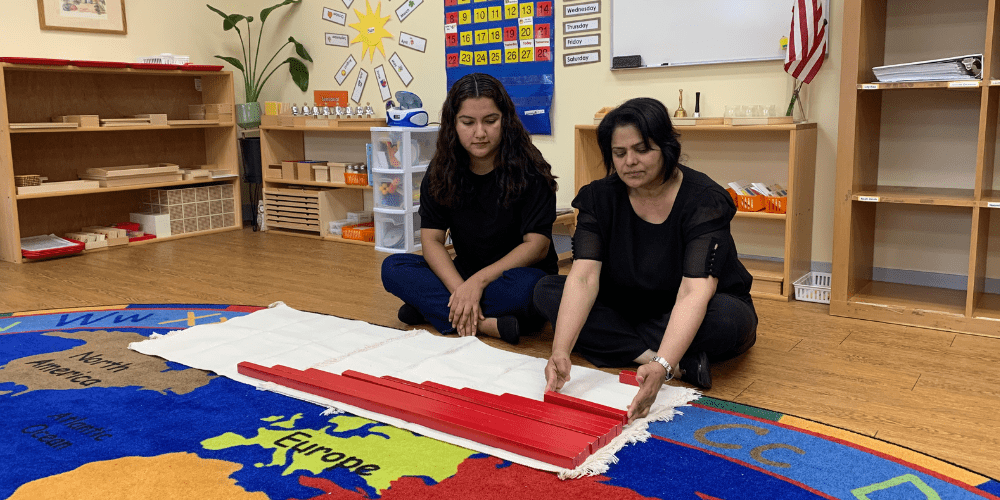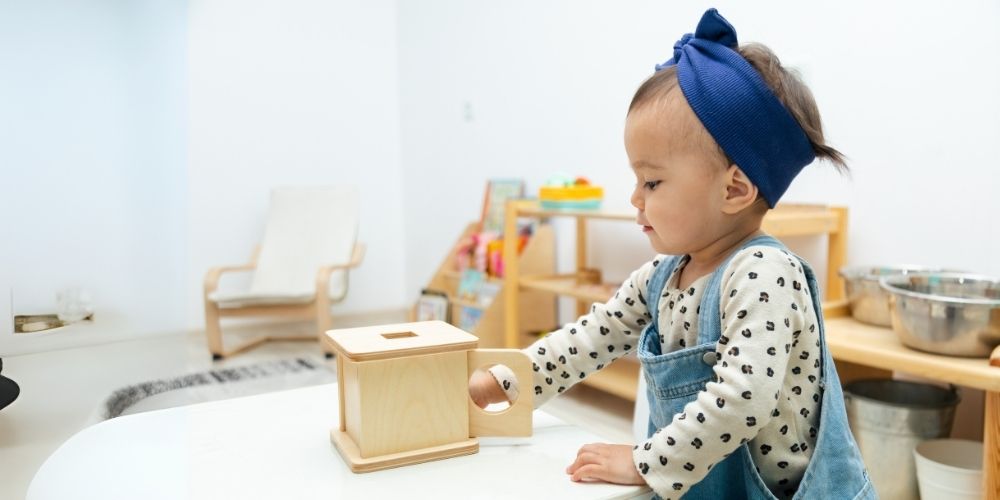Our History
Based on the philosophy of Dr. Maria Montessori, Children’s Manor and Children’s Magnet Montessori Schools (CMMS) was founded with the mission of preparing children to excel in a global society by providing an academically rigorous, engaging, and supportive learning environment that cultivates curiosity, creativity, and critical thinking. We opened our first location in Ellicott City in 1993 and have since expanded to 9 locations across Maryland. We offer programs from infant care to elementary school, and have educated tens of thousands of children over the past 30 years.
In 2017, we expanded our educational offerings beyond the early childhood years to provide college-preparatory education by opening the Maryland International School (MDIS) for grades 1-12. The mission of MDIS is to provide an academically rigorous and supportive college-preparatory education with an interdisciplinary and applied focus on the Science, Technology, Engineering, and Mathematics (STEM) disciplines in order to prepare students to become creative problem solvers, effective communicators, and tomorrow’s leaders who think ethically, independently, and globally. The vision for MDIS was to become an International Baccalaureate (IB) World School and it achieved that status in 2019, becoming the only school in Maryland and the 2nd school in the Mid-Atlantic region to offer all three IB Programmes – the Primary Years Programme, The Middle Years Programme, and the Diploma Programme.
What is Montessori?
The Montessori Method was developed by Dr. Maria Montessori in the early 1900s. It is a specific child-centered method of education that is based on child-directed activity and hands-on learning, allowing for self-paced, individualized education. The foundation of Dr. Montessori’s educational theory was based on her observation that children possess innate desires to explore, discover, and learn about the world around them. She observed that children learn best within a social environment that supports personal development. Montessori focuses on developing the whole child, including academic, physical, social/emotional and cognitive education, with the teacher acting as a guide in fostering the child’s joy of learning.
At CMMS, our proprietary Montessori Links curriculum integrates the five core Montessori learning areas (Practical Life, Sensorial, Mathematics, Language, and Cultural Studies, which includes Geography, History and Science) with interdisciplinary learning experiences in Character Development, STEM, Continent Connections, Spanish, Music, Movement, and Art.
What is IB?
International Baccalaureate (IB) programmes aim to develop inquiring, knowledgeable and caring young people who help to create a better and more peaceful world through intercultural understanding and respect. IB teaches students to think critically, creatively, ethically, and globally and is recognized worldwide as the “gold standard” in pre-university preparation. The IB framework, based on research and best practices from several national school systems, is continuously improving in order to offer students a relevant, engaging and challenging education that prepares students for college success.
As an accredited International Baccalaureate World School, MDIS is built on this IB framework. With programmes for students in grades 1-12, we focus on the growth and development of the whole student, ensuring the social, emotional, physical, cultural, and academic development of our students.
The Montessori & IB Complementary Continuum
It is increasingly evident that the IB framework & the Montessori method share many attributes in their educational approach and are in-fact synergistic. Fundamentally, both systems strive to inspire a passion for learning and work to develop and support the whole child, expanding the continuum from early childhood education to college-prep education.
Check out our infographic to learn more.
Below, we outline a few shared attributes common in both methodologies:
Inquiry & Exploration
Student inquiry and active exploration are core components of both Montessori and IB. In Montessori, teachers support children to self-select work in the Montessori prepared classroom, allowing them to explore their interests and foster their curiosity and desire to learn.
This principle is expanded upon in the IB programmes, where structured inquiry is a critical attribute of the IB Learner Profile. Inquiry-based learning includes teaching methods built on students’ individual knowledge and interests and emphasizes learning ‘how to learn’ and ‘how to find out’, using both traditional and contemporary media. For example, the IB Primary Years Programme focuses on the development of the child as an inquirer, both in the classroom and in the world outside. It is a framework guided by six transdisciplinary themes of global significance, explored using knowledge and skills derived from six subject areas, as well as transdisciplinary skills, with a powerful emphasis on inquiry.
Student-Centered
Both Montessori and IB have the student at the center of their learning. In Montessori, teachers act as a guide and assist children in finding their own strengths and capabilities through the use of developmentally appropriate lessons and engaging, self-correcting Montessori materials. Montessori teachers use observation in their evaluation of each child’s academic, emotional, and social progress, interests, and personality, while also allowing each child the space to practice independence and responsibility.
In the IB pedagogical framework – Approaches to Teaching – differentiation to meet the needs of the individual learner is a key principle in developing the whole student. Differentiated teaching may take on various forms in IB from collaborative to cooperative learning modalities to presenting information and knowledge through different formats and modes to providing students with multiple means of representation, action and expression, and engagement.
Global-focus
Both Montessori and IB recognize that we live in a global community and promote education, awareness, and involvement within this global context. The Montessori curriculum is international in its heritage and focus and consciously seeks to promote a global perspective. For example, at CMMS students are introduced to each continent on a monthly basis and learn about literature, music, food, and the arts of the diverse countries within.
The global focus is at the heart of IB. As stated by IB, “the aim of all IB programmes is to develop intentionally minded people who, recognizing their common humanity and shared guardianship of the planet, help to create a better and more peaceful work.” IB programmes insist that all students study at least one second language, urge students to consider multiple perspectives, study global issues and provide possible solutions, and encourage student/faculty exchanges with other countries.
The Global Ambassadors Program is a signature experience for upper school students at MDIS. Students will travel the world for language immersion, service-learning, and independent study abroad programs. Students who participate in the program consecutively throughout middle and high school will visit five continents by graduation.
Leadership Development
A core component of the Montessori method is the mixed-age classroom where students work in multi-age groupings. This approach develops leadership skills in the older children and allows them to serve as role models, while younger students learn to model behaviors and work in cooperation. These practical skills become critical to the child’s social and emotional development as they grow older.
The importance of leadership development is evident in the attributes of the IB learner profile, from Communication to Risk-Taking, to Principles, that require students to develop human capacities and responsibilities beyond academics. In fact, students are expected to take real action through projects that apply to real-world problems. For example, our annual STEM Festival and Earth Day Events are interconnected. Students backward map from the Earth Day Theme, applying how STEM can be used to impact climate change.
Learn more
Inquiry & Exploration, Student-Centered, Global Focus, and Leadership Development are just a few common attributes of the Montessori and International Baccalaureate methodologies. As we have discussed, IB & Montessori programs both inspire a passion for inquiry-based learning and develop the whole child. At CMMS and MDIS, these two methodologies are working together to develop tomorrow’s leaders.
If you are looking to learn more about Montessori Philosophy & Curriculum, visit CMMS. If you are interested in learning more about an International Baccalaureate Education, visit MDIS.






